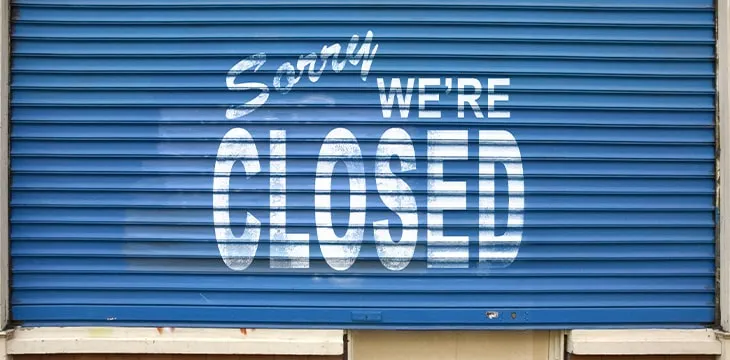|
Getting your Trinity Audio player ready...
|
DeFi asset management platform Babylon Finance announced it will shut down this week, apparently due to April 2022’s Rari/FEI hack attack and general bearing sentiment in the digital asset market. The community-driven investment group promised to return all remaining assets to users and open-source Babylon’s code base should anyone wish to fork or rebuild the project in the future.
Ethereum-based Babylon Finance launched in 2021 with a DAO structure and opportunity voting system for its investor-users. Following a series of misadventures at external projects in which the group had invested, Babylon’s native BABL token dropped sharply in value, and its liquidity pools were depleted.
Founder Ramon Recuero posted a long tweet thread and Medium post detailing the reasons for Babylon’s closure. He revealed that he and his team had “been working for months without a salary” in an attempt to save the project with a greatly diminished resource base. However, it proved impossible to regain the US$50 million in value required to get things back on track, and “having reached this point, we believe the responsible and ethical thing to do is to wind down the DAO and return all remaining assets to BABL holders.”
“We have failed and we need to accept it,” he said.
1/ Babylon Finance is Shutting Down
Despite our efforts, we haven’t been able to revert the negative momentum caused by the Rari hack. 🐻 Market hasn't helped.https://t.co/Qgb5XM33ZX
🧵 TLDR below
— Ramon Recuero | 🦇🔊 (@ramonrecuero) August 31, 2022
He promised the Babylon website would remain active until November 15, 2022, and urged users to unwind their positions before that date. The remaining assets would be distributed among BABL/hBABL holders, and users would not be able to send deposits or create “gardens” (Babylon’s term for investment pools) effective immediately.
Recuero praised what Babylon Finance and its users had achieved in the project’s short lifespan, but also listed the lessons he and the team had learned. Babylon had sought US$20 million capital but only raised $3 million, hacks/exploits on other platforms lost users’ funds and caused panic, and there was a general lack of understanding regarding the young digital asset market, he said.
He referred to many investors as “degens” and “early adopters” with “an extremely short-time preference and high-risk tolerance.” Babylon, he said, was focused on medium to long-term investments, but the volatility that drove their enthusiasm also resulted in panics and fickle behavior that ruined DeFi projects amid global economic turmoil.
Responses to Recuero’s statements suggested users held Babylon in high regard and agreed that it may have arrived “too early” to attract serious users more interested in serious investing than gambling.
Babylon Finance’s DeFi DAO and voting pools
Babylon Finance launched in 2021 with a mission and structure now familiar to blockchain world followers. It promised “democratization of investing” in assets previously inaccessible to most due to regulation and jurisdiction, a community-driven ecosystem, a decentralized DAO structure, and new opportunities for investors as inflation and low yields ravage the traditional financial/equities markets.
Recuero gave the examples of Wall Street Bets, Seeking Alpha, and Real Vision—along with the problems WSB experienced with trading app Robinhood—as demonstrating the “power of investing as a tribe.” The “meme stock” phenomenon of the 2020s brought some of blockchain’s speculative tsunamis and chatroom-driven herds into the traditional equities herd, and projects like Babylon sought to harness some of that energy.
Babylon also promised rewards for opinion leaders able to identify the best new opportunities and a reputation system to up and down-vote those opportunities to activate its pooled capital for the top-voted idea.
“There are a lot of valid ways to make money in this ecosystem and we welcome them all,” Recuero said. Users could choose from a list of integrated protocols to use and where to direct their own capital.
Despite what appears to be the best of intentions, Babylon ended up a victim of some of the less-valid ways to make money in digital assets. From outright hacks to speculative sentiment, it remains unclear whether digital asset investors care at all about the ecosystem and its service providers or only about whether the line keeps going up.
Most DeFi investments are in other digital asset projects, with very little to show in terms of real-world assets created. The technology will have to prove it has something to offer the real economy and value outside of speculation and gambling to survive long-term. So far, that hasn’t happened to any great extent.
Watch: The BSV Global Blockchain Convention panel, Blockchain Venture Investments: Driving Utility for a Better World
https://www.youtube.com/watch?v=HNy92DwO3EY

 07-04-2025
07-04-2025 





